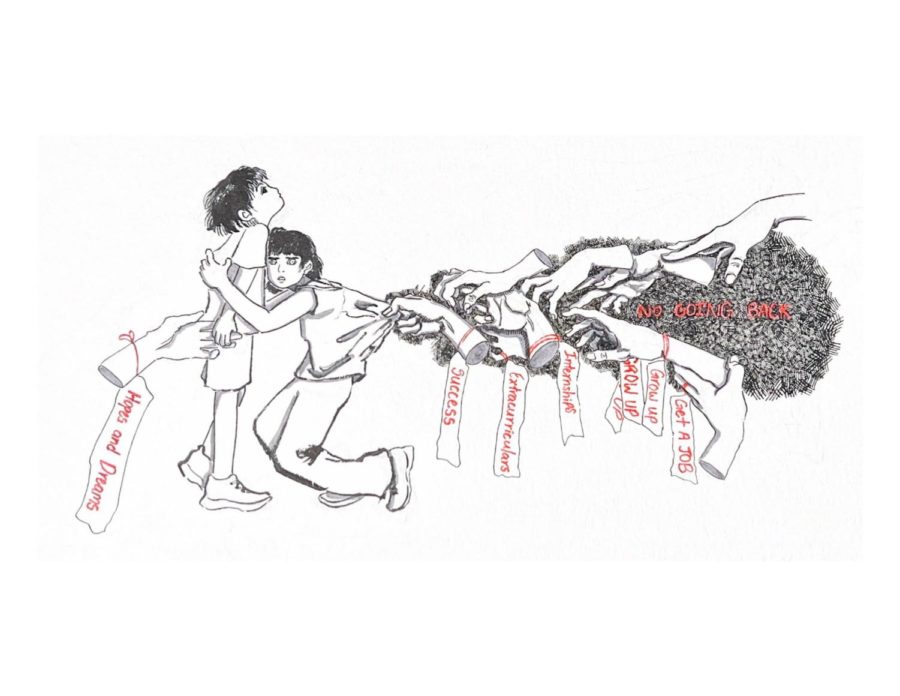Given all the chatter on campus recently about the Kalven Report and socially responsible investment, I decided that it would behoove me to read more on the history of the subject. That turned out to be a good decision, since it enabled me to find some true gems of pretzel logic and obfuscation.
Take, for instance, this question and response in the University’s FAQ from a few years ago on the debate over divestment from Sudan:
Does the decision not to divest mean the University is condoning the genocide in Darfur?
No. University trustees, administrators, faculty, staff, and students have expressed their concern and outrage over the atrocities being committed in Darfur.
However, the Kalven Report declares, “The instrument of dissent and criticism is the individual faculty member of the individual student. The university…is not itself the critic.” If the University insists upon distinguishing between the opinion of individuals comprising the University community and of the University itself, it cannot also hide behind the opinions expressed by those individuals when they prove to be convenient. At any rate, if the University profited by investing in companies that were involved in human rights abuses, banal statements about opposing atrocities are hardly meaningful. In fact, they remind me of nothing so much as the end of Lewis Carroll’s “The Walrus and the Carpenter,” when the Walrus tells the oysters, “I weep for you… I deeply sympathize”—shortly before he eats all of them.
I agree with the Kalven Report’s sentiment that the University should make an effort to stay politically neutral, but I do not think the word “neutrality” means what the University thinks it means. For instance, the University can maintain neutrality by not publicly endorsing a candidate for the presidential elections because neither candidate would stand to lose or gain much through University inaction. On the other hand, if the University believes that divestment is tantamount to taking a certain stand on an issue, then it would be sensible to conclude that investment is equivalent to taking the opposite stand. It’s not as though University funds magically developed sentience and traded themselves in to obtain stocks and funds for the University’s portfolio. Somebody was responsible for the decision to make those investments.
The main argument put forth by opponents of a Socially Responsible Investment Committee (SRIC) is that it will undermine free inquiry. Many other universities and colleges, including Yale, Amherst, and Berkeley, have opted in recent years to divest from companies operating in Sudan. Instead of simply relying upon the Kalven Report to speculate on what the impact of SRIC would be, we can actually observe for ourselves what has happened at other institutions. As far as I can tell, free inquiry has survived. If anything, the University could use SRIC to promote critical thinking. It is much more difficult to justify decisions on a case-by-case basis than it is to defer responsibility to a two-page document written 45 years ago.
A friend of mine once described universities as “hedge funds that happen to have an educational subsidiary.” At the time, I thought the description was excessively cynical. Now I’m beginning to wonder if he had a point. For all the talk about fostering intellectual freedom, I can’t help thinking that concerns about prestige and money are at the root of the opposition to socially responsible investment. After all, making ethical investments doesn’t enhance a university’s U.S. News rankings or its standing in the eyes of the typical employer or graduate school admissions committee. On the other hand, if the University does divest, it risks making less money. Then I suppose we’ll have fewer shiny buildings and delicious study breaks, high school seniors will lose interest in applying, and fewer alumni will donate.
While I am a big fan of both shiny buildings and delicious study breaks, I remain concerned that whatever personal and intellectual growth I seek in college may be made possible in part by the exploitation of other people. The Kalven Report states, “The mission of the University is the discovery, improvement, and dissemination of knowledge.” But “First, do no harm” ought to be part of the mission as well. Though it’s not the university’s duty to be a white knight that charges around saving the world, I don’t think it’s asking too much for the University to try to minimize any deleterious effects its own actions may have. Perhaps universities need to swear by a modified version of the Hippocratic Oath, with the inclusion of one of its most important lines: “I will remember that I remain a member of society with special obligations to all my fellow human beings.”
Jane Huang is a second-year in the College.








